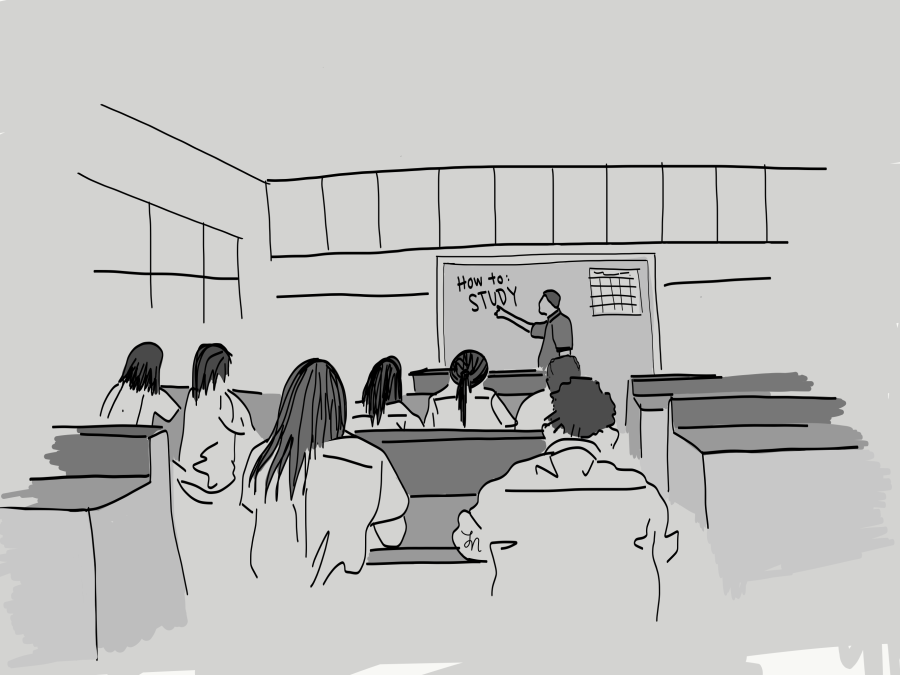Students are no strangers to how terrifying it is to be handed a test on test day and scan through the pages only to realize all the problems are significantly more difficult than the material usually covered in class.
Although exams should test a student’s ability to synthesize the basic information given in class, students should not be expected to make the leap from knowing fundamentals to implementing them in problem-solving situations without adequate preparation.
That’s not to say tests and exams should be made easier for students; instead, test preparation should be improved.
Many classes are structured with a format involving multiple lectures, followed by a unit test worth a significant part of a student’s grade.
One issue with this structure stems from the majority of teachers, who have most likely reviewed the same material for multiple years, is that they assume their students can completely grasp every aspect of a topic from solely a 90-minute, uninteruppted lecture.
According to junior Naomi Jecker, there is a more effective way of learning and applying the material than a lecture. In her Advanced Placement (AP) Biology class, her teacher provides harder practice problems based on the given lectures and helps students figure them out together.
Jecker said having the extra help in order to bridge the gap between being introduced to material in a lecture and applying that information to harder problems is helpful to better understand the material and do well on a test.
Furthermore, homework problems and test problems are often not of the same difficulty.
Usually, the problems given in class are far more simple than test questions.
According to junior Priya Bakshi, who is enrolled in AP Chemistry, there is not much homework assigned in the course; the grade mainly consists of labs and tests.
Bakshi said there should be more structure regarding the homework policy; the test problems are a fairly large leap in logic compared to what is shown in class.
AP Chemistry unit tests often consist of old AP test questions in order to prepare students for the real AP exam in May.
Using that same logic, why not prepare students for the unit tests by giving them the same types of questions of similar levels of difficulty?
While it is important to provide students with a basic understanding of the material, it is more important to teach them how to problem solve in order to be more prepared for difficult test questions in the future.
For math teacher Cynthia Chen, who teaches both AP Statistics and Analysis Honors, the amount of materials varies from class to class.
For example, in her AP Statistics class, she provides a review packet that includes both multiple choice and free response questions and additionally gives students free response questions from past released AP tests under a given time restraint to experience what it might be like during the actual AP exam.
In her Analysis Honors course, Chen provides a significant amount of test prep, which includes several review sheets containing “medium” to “spicy” practice problems as well as last year’s quizzes, so that current students are well prepared for upcoming quizzes and midterms.
According to junior Noa Lehrer, a current Analysis Honors student, even though it is a challenging class, Chen provides the tools necessary to become used to the difficult problems and to further develop on-the-spot problem-solving skills.
It is important for students to feel fully prepared for any given test.
While it is also important for the student to study on their own time, teachers should implement more teaching of how to solve harder problems that will be on tests, rather than providing students with the more basic, surface-level practice questions.
Test scores account for a high percentage of the grade in a majority of classes; that should be taken into consideration when assigning homework and giving example problems in class.
Teachers should be more focused on helping students incorporate knowledge given in lectures in order to improve understanding of material and therefore, test scores.


Nucleon IIT JEE KOTA • Dec 9, 2022 at 10:30 pm
Great article, the information provided to us. Thank you